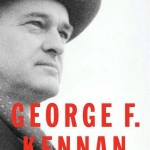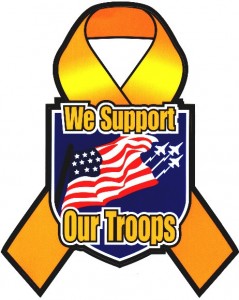John Kerry is now slated to head the Department of State, home for U.S. diplomacy.
 An age ago when the Cold War with the Soviet Union was at its height, a famous American diplomat made the following observations:
An age ago when the Cold War with the Soviet Union was at its height, a famous American diplomat made the following observations:
” . . . while Christian values often are involved in the issues of American conflict with the Soviet power, we cannot conclude that everything we want automatically reflects the purpose of God and everything the Russians want reflects the purposes of the devil. . . . We must concede the possibility that there might be some areas of conflict involved in this cold war which a Divine Power could contemplate only with a sense of pity and disgust for both parties, and others in which He might even consider us to be wrong.”
 The diplomat, George F. Kennan, advocated that his beloved country take the high ground, that it develop its moral principles first and that military power only be used when absolutely necessary.
The diplomat, George F. Kennan, advocated that his beloved country take the high ground, that it develop its moral principles first and that military power only be used when absolutely necessary.
Further, he said:
“A government can pursue its purpose in a patient and conciliatory and understanding way, respecting the interests of others and infusing its behavior with a high standard of decency and honesty and humanity, or it can show itself petty, exacting, devious, and self-righteous. If it behaves badly, even the most worthy of its purposes will be apt to be polluted, whereas sheer good manners will bring some measure of redemption to even the most disastrous undertaking.”
These quotations are taken from “Foreign Policy and Christian Conscience” which The Atlantic Monthly published in May, 1959.
The U.S. never fought the Soviet Union directly in a war that may well have involved nuclear weapons. Kennan’s influence in no small part led the country to wait patiently. Eventually the Soviet Union caved from its own weaknesses, as Kennan had predicted.


 I can see my friend’s point, though. We no longer have a citizen army, with most young men bearing equal burdens to fight, if necessary, in the country’s conflicts. New recruits are not as likely to come from the class of richer young people, those with privilege, as from those of the less advantaged. The bodies brought back from Afghanistan tend to be grieved by families of lesser education and money.
I can see my friend’s point, though. We no longer have a citizen army, with most young men bearing equal burdens to fight, if necessary, in the country’s conflicts. New recruits are not as likely to come from the class of richer young people, those with privilege, as from those of the less advantaged. The bodies brought back from Afghanistan tend to be grieved by families of lesser education and money.